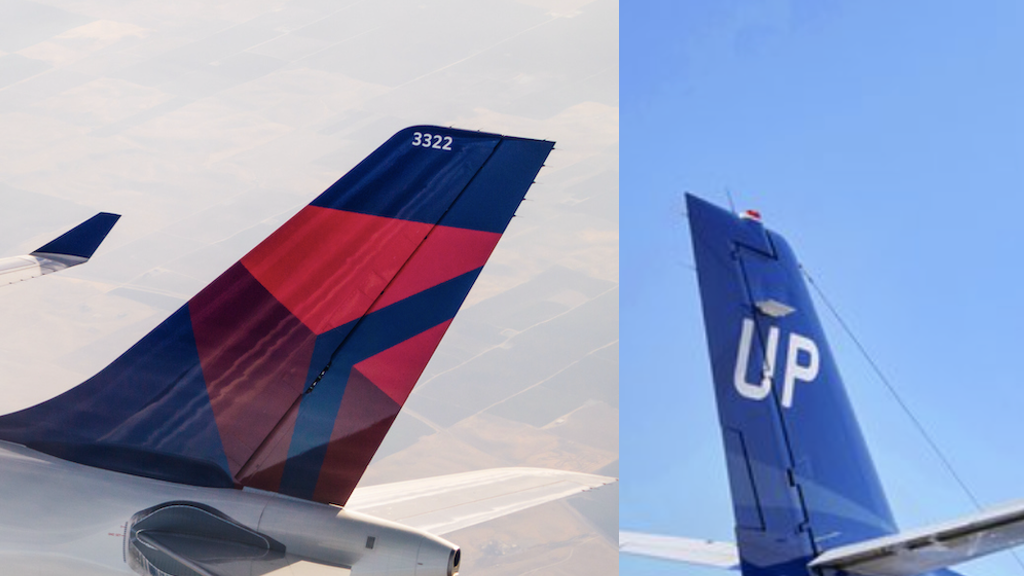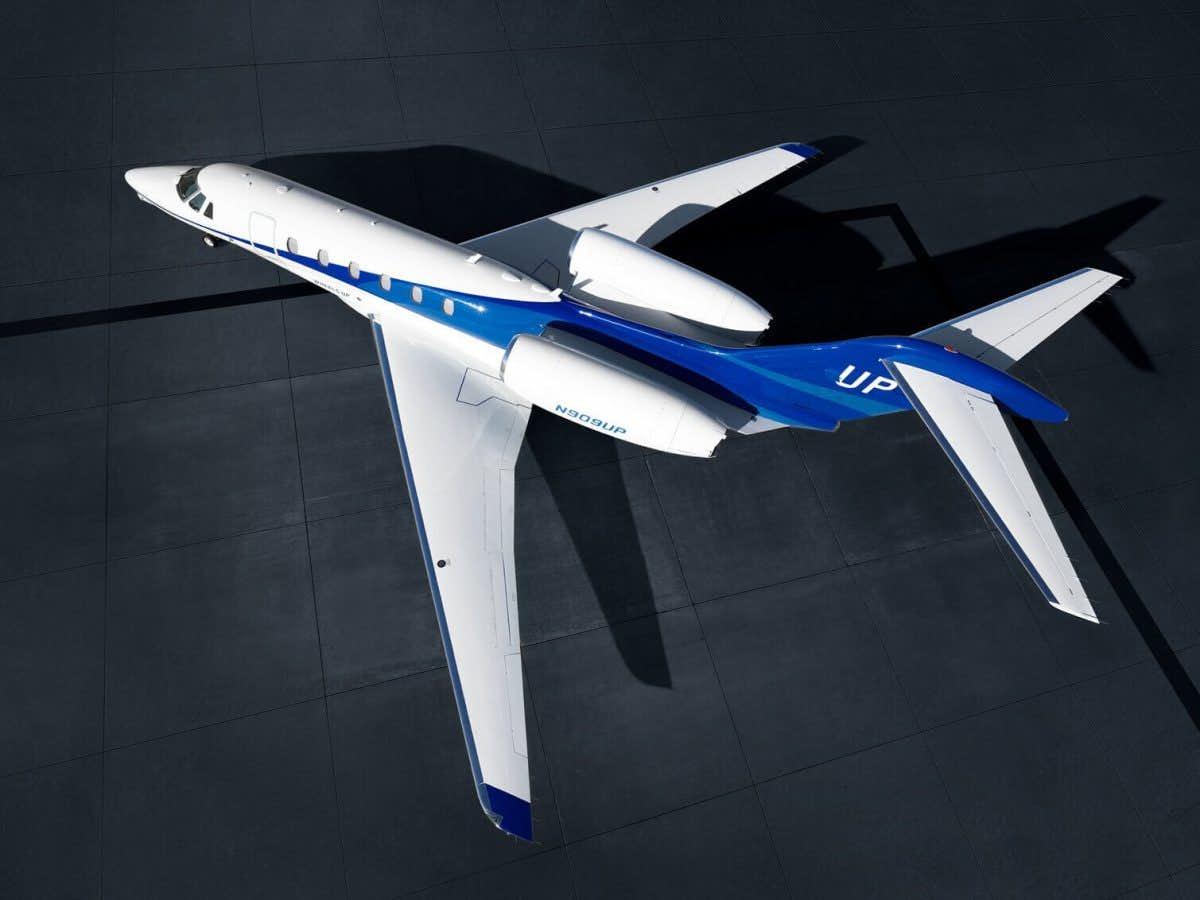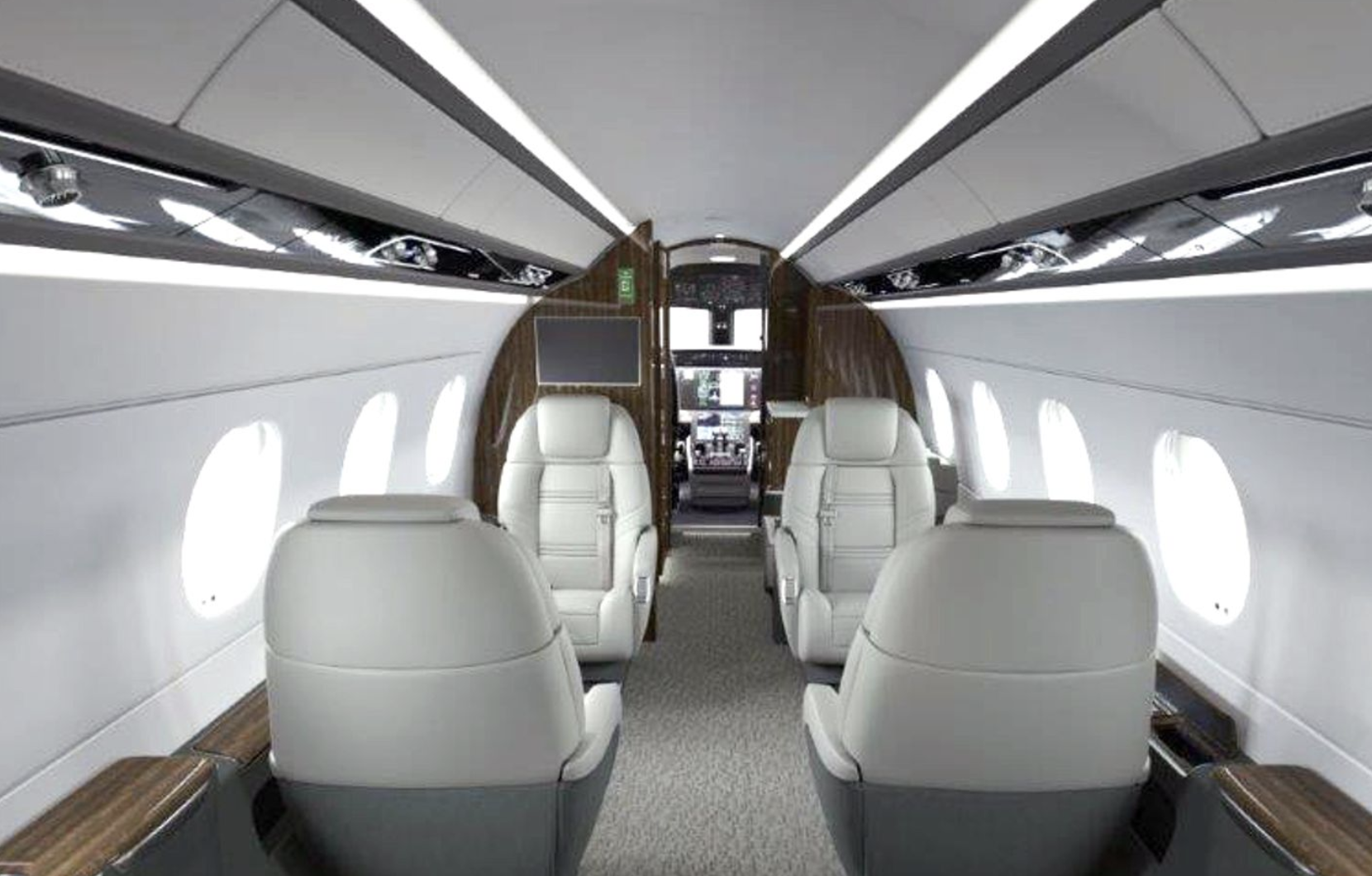Wheels Up is still losing money, but its CEO, George Mattson, says the company is now oriented in the right direction on the financial ledger, fleet modernization, and how it addresses the market (You can download the entire 54-page Q1 2025 8-K filing at the end of the story).
Mattson says, “Our results this quarter show the progress we are making in our business transformation, and we are pleased to see continued commercial momentum in light of more uncertain economic conditions.”
He adds, “We remain focused on improving profitability and expanding margins by modernizing our fleet, leveraging our first-of-its-kind partnership with Delta, and delivering premium solutions for every customer journey.”
Q1 Financial Results
In terms of the Q1 2025 Wheels Up financials:
- Net loss was $99.3 million, an increase from $97.4 million
- Adjusted EBITDA loss was $24.2 million, a 51% improvement over Q1 last year.
- Adjusted EBITDAR loss of $18.8 million was a 54% improvement.
- Revenue was down 10% to $177.5.
Mattson says the top-line numbers don’t necessarily tell the entire story.
Completion Rate (97%) and On-Time Performance (85%) stayed within its improved operational performance during the past 18 months.
The consistent performance results from two years of work streamlining a half-dozen operating certificates down to a single certificate and its investment from opening a central operations center, now also its headquarters, back in 2023.
Survival is no longer the question of the day.
The company ended the quarter with approximately $272 million of total liquidity, $171.8 million of cash and cash equivalents, and a $100 million undrawn revolving credit facility.
On April 30, 2025, it agreed with Delta Air Lines to extend the $100 million revolving credit facility to remain available through September 20, 2026.
North America’s fourth-largest charter/fractional operator still expects a positive Adjusted EBITDA for the full year 2025.
The Gross Loss in Q1 2025 was $1.1 million, a $15.5 million improvement over Q1 2024.
Adjusted Contribution was $22.4 million, a margin of 12.6%.
That was up 12 percentage points year over year.
Gross Bookings Rise
Total Gross Bookings were up 8% to $241.9 million in the quarter.
Private Jet Gross Bookings increased 7% to $205.3 million.
Total Gross Bookings are the total gross spent by members and customers on all private jet flight services under its member programs and charter offerings, all group charter flights (charter flights with over 14 passengers), and cargo charter flight services
Private Jet Gross Bookings are the total gross spend by members and customers on all private jet flight services via its member programs and charter offerings, excluding Group Charter Flights and Cargo Services.
Gross Bookings reflect the total booking value of third-party charter flights, reflecting the company’s focus on building its Air Partner brokers.
The $177.5 million in Q1 revenue reported in its financials only accounts for the net between what the customer paid for the flight and what Wheels Up paid to the operator for its charter business.
On April 30, the company’s Board of Directors approved repurchasing up to $10 million in company stock shares.
In early afternoon trading, Wheels Up shares were $1.07.
READ: Wheels Up receives NYSE non-compliance notice
Business Travel Mix Gains
Since reshaping its capped rate service area map in June 2023, through the Delta Air Lines investment later that year and Mattson’s appointment as CEO in September 2023, the company has been trying to refocus its business mix.
That means less focus on selling memberships, more emphasis on solutions, closer cooperation with Delta, and more reliance on its Air Partner private jet charter brokerage.
Results, so far, are where they should be, says Mattson.
About 40% of revenues are now related to business flying, a reversal from the company’s 90/10 leisure mix.
That discretionary travel focus stressed its aging fleet on Thursdays, Fridays, Sundays, Monday mornings, and holidays, and left it underutilized mid-week.
Mattson notes that corporate membership fund sales were up 13% year-over-year, representing nearly 40% of total membership fund sales.
The CEO recently told investment firm Jefferies that the increases reflected its shoulder-to-shoulder sales strategy with Delta, which leverages the airline’s over 1,000 sales executives and 45,000 corporate accounts.
READ: A Brief History Of Airlines And Private Jet Partnerships
Out With The Old
Mattson believes that Active Members, once a key metric in quarterly earnings announcements, are no longer a good yardstick.
“We meet people where they’re at, and if you’re in a solution-centric business, you don’t segment that way anymore,” Mattson says.
Active Members peaked at 12,668 in Q2 2022.
They included the Connect membership and pay-as-you-go level that were eliminated last year.
Mattson says the numbers are now apples and oranges due to program changes.
Its current membership program charges an annual $8,500 fee and requires a deposit of at least $100,000.
You can also book on-demand charter flights via its website without becoming a member.
Active Users, which stood at 6,166, is the new measure (down 40% year-over-year).
Active Members had fallen to 5,369 in Q4 and are no longer reported.
Mattson says, “We want to measure the number of people in our ecosystem. But frankly, we have many (non-membership) customers who spend far more (on flights) with us than certain members.”
Either way, Wheels Up still had a $19 million year-over-year gain in block sales during Q1 (below).
Wheels Up Block Sales by Quarter (2021-25 by Quarter)
| Period |
Block Sales (in millions) |
| Q1 2025 |
$133 |
| Q4 2024 |
$190 |
| Q3 2024 |
$147 |
| Q2 2024 |
$145 |
| Q1 2024 |
$114 |
| Q4 2023 |
$207 |
| Q3 2023 |
$79 |
| Q2 2023 |
$96 |
| Q1 2023 |
$100 |
| Q4 2022 |
$346 |
| Q3 2022 |
$151 |
| Q2 2022 |
$333 |
| Q1 2022 |
$175 |
| Q4 2021 |
$540 |
| Q3 2021 |
$172 |
| Q2 2021 |
$116 |
| Q1 2021 |
$69 |
Source: Wheels Up
Block sales – prepaid jet card funds – were $133 million in Q1 2025, a 16.7% increase.
It was the best block sales performance in Q1 since 2022.
Fleet Modernization
Wheels Up is continuing to transition its fleet from older Hawker light jets, Citation Excels, and super-midsize Citation Xs to more premium Phenom 300s and Challenger super-midsize jets.
Nearly 25% of its private jet fleet has been transitioned since October.
That includes three Challenger 300s and 18 Phenom 300s as of March 31, 2025.
An additional Challenger was added in April.
Wheels Up also executed a previously announced agreement with Gogo to install Galileo HDX satellite Wi-Fi systems.
Installation will begin this summer and “ramp up quickly through the remainder of the year.”
The newer and more reliable aircraft will enable Wheels Up to reduce its jet fleet from the current 100 range to 80 and still have room for growth.
Wheels Up Pricing Strategy
Wheels Up also now prices flights based on day parts.
Members still benefit from the caps, but Mattson says being able to discount flights by time of day enables it to maximize flying.
For example, somebody who books a departure for midday might tie up that aircraft the entire day.
In contrast, an early morning departure could enable that same aircraft to have multiple revenue legs during the day.
Mattson explains:
‘If I could fly somebody at 8 a.m., somebody at 11 a.m., and somebody at 4 pm, then I’m driving utility (for) my fleet. I’m driving my costs down. And when I drive my costs down, I can drive my pricing down. And so if you called up and said (you want to fly at) 11 a.m., but then we said, well, okay, what if we take you at 8 a.m. for $4,000 less?’
The company plans to make it more apparent how much members have saved below the caps and how much they can save via alternate departure times and nearby airports on the same day.
Wheels Up will publish actual pricing for the trailing 90 days to highlight savings versus caps.
What’s Next For Wheels Up?
So, what will happen as the fleet transformation continues?
While members can request the Phenoms – and soon the Challengers – their contracted cap rates only apply to categories.
The contracted rate caps apply to its King Air 350s, light, midsize, and super-midsize jets sold as categories.
Will the company continue to offer capped rates as it moves to a more solutions-based approach?
“Going to fully dynamic pricing across the board is a bit of an oversimplification of a much more nuanced and complex conversation,” Mattson says.
He continues, “We think you’ll actually be better off if we’re able to price more dynamically in a way that drives us to be more efficient and passes some of those benefits on to our customers.”
If Wheels Up does move away from capped rates at some point, it will be bucking a trend.
Other large operators, including NetJets, FlyExclusive, Solairus Aviation, PlaneSense, Airshare, Northern Jet, Fly Alliance, Jetvia (formerly ATI Jet), Ventura Air Services, and Hera Jet, have been expanding guaranteed capped or fixed-rate jet card programs over the past months and years.
However, executives emphasized that, at least for now, the company’s current capped-rate membership options are not being changed.
DOWNLOAD: Wheels Up Q1 2025 financials












